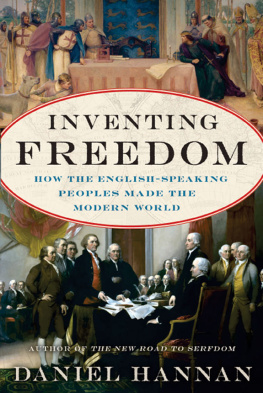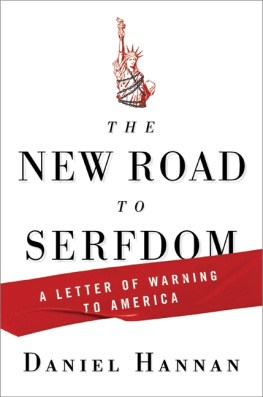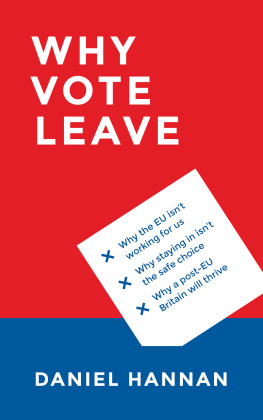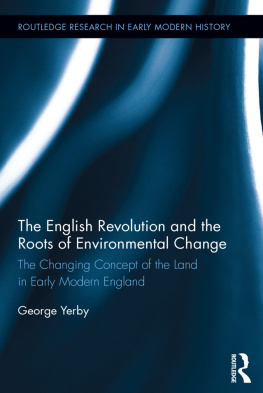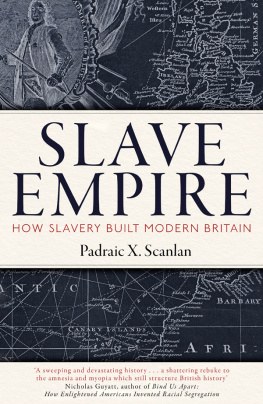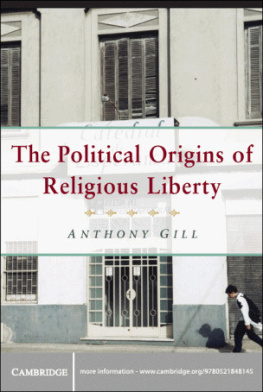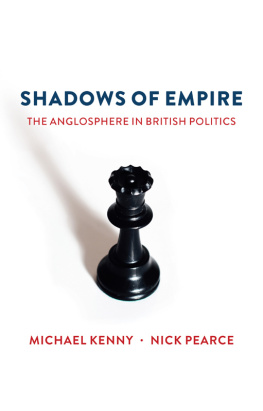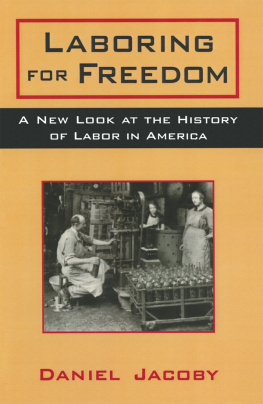FOR ANNABEL AND ALLEGRA, WHO MADE ME PUT IN THE JENNY GEDDES STORY
Contents
I t was only several years after being elected to political office that I finally admitted to myself that I would never be a full-time historian. There were too many more immediate challenges.
This book owes everything to the people who made a different choice, elevating the important over the immediate.
My thanks go, first, to Dr. Graham Stewart, one of Britains finest modern historians, who offered priceless suggestions and improvements. Second, to Dr. James Hannam, who was kind enough to ameliorate great chunks of text. Third, to my tutor, Dr. Jeremy Catto: I can hardly, after his involvement with this book, call him my former tutor, though more than twenty years have passed since our last formal tutorial at Oxford.
Nor can I forget the other men who showed me how to look at the past: Richard Speight, Niall Hamilton, Michael Preston, Peregrine Horden, Richard Wilkinson, Robert Beddard, and Norman Stone.
Then there are the professional historians and writers whose thoughts have led mine, and whose insights show in this work as the shadows on the cave wall: James Bennett, Hugh Brogan, James Campbell, Linda Colley, Dinesh DSouza, Niall Ferguson, John Fonte, David Hackett Fischer, Lawrence James, Roger Kimball, Alan Maddicott, Alan Macfarlane, John OSullivan, Kevin Phillips, Andrew Roberts, Roger Scruton, Matthew Spalding, Claudio Vliz.
Thanks, most of all, to Sara.
There are few words which are used more loosely than the word Civilization. What does it mean? It means a society based upon the opinion of civilians. It means that violence, the rule of warriors and despotic chiefs, the conditions of camps and warfare, of riot and tyranny, give place to parliaments where laws are made, and independent courts of justice in which over long periods those laws are maintained. That is Civilizationand in its soil grow continually freedom, comfort, and culture. When Civilization reigns, in any country, a wider and less harassed life is afforded to the masses of the people. The traditions of the past are cherished, and the inheritance bequeathed to us by former wise or valiant men becomes a rich estate to be enjoyed and used by all.
W INSTON C HURCHILL, 1938
The liberty, the unalienable, indefeasible rights of men, the honor and dignity of human nature, the grandeur and glory of the public, and the universal happiness of individuals, were never so skillfully and successfully consulted as in that most excellent monument of human art, the common law of England.
J OHN A DAMS, 1763
W hen I was four years old, a mob attacked our family farm. There was a back entrance, a footpath into the hills, and my mother led me there by the hand. Were going to play a game, she told me. If we have to come this way again, we must do it without making a sound.
My father was having none of it. He had a duty to the farmworkers, he said, and wasnt going to be driven off his own land by hooligans bused in from the city.
He was suffering, I remember, from one of those diseases that periodically afflict white men in the tropics, and he sat in his dressing gown, loading his revolver with paper-thin hands.
This was the Peru of General Juan Velasco, whose putsch in 1968 had thrown the country into a state of squalor from which it has only recently recovered. Having nationalized the main industries, Velasco decreed a program of land reform under which farms were broken up and given to his military cronies.
As invariably happens when governments plunder their citizens, groups of agitators decided to take the law into their own hands. It was the same story as in the Spanish Second Republic, or Allendes Chile: the police, seeing which way the wind was blowing, were reluctant to protect property.
Knowing that no help would come from the authorities, my father and two security guards dispersed the gang with shots as the latter attempted to burn down the front gates. The danger passed.
Not everyone was so lucky. There were land invasions and confiscations all over the country. The mines and fishing fleets were seized. Foreign investment fled and companies repatriated their employees. The large Anglo-Peruvian community into which I had been born all but disappeared.
Only many years later did it strike me that no one had been especially surprised. There was a weary acceptance that, in South America, property was insecure, the rule of law fragile, and civil government contingent. What you owned might at any moment be snatched away, either with or without official sanction. Regimes came and went, and constitutions were ephemeral.
At the same time it was assumed, by South Americans as well as by expatriates, that such things didnt happen in the English-speaking world. As I grew up, attending boarding school in the United Kingdom but returning to Peru for most of my vacations, I began to wonder at the contrast.
Peru, after all, was on paper a Western country. Its civilization was Christian. Its founders had thought of themselves as children of the Enlightenment, and had been strongly committed to reason, science, democracy, and civil rights.
Yet Peruindeed, Latin America in generalnever achieved the law-based civil society that North America takes for granted. Settled at around the same time, the two great landmasses of the New World serve almost as a controlled experiment. The north was settled by English-speakers, who took with them a belief in property rights, personal liberty, and representative government. The south was settled by Iberians who replicated the vast estates and quasi-feudal society of their home provinces. Despite being the poorer continent in natural resources, North America became the most desirable living space on the planet, attracting hundreds of millions of people with the promise of freedom. South America, by contrast, remained closer to the state of nature that the great philosopher Thomas Hobbes saw as the terrifying prelude to civil government. Legitimacy was never far removed from raw physical power, whether in the form of control of the mob or control of the armed forces.
It is hard to avoid the conclusion that this distinction reflects a difference between the two ancestral cultures. Please dont get me wrong. I am a convinced Hispanophile. I love Spanish literature and history, theater and music. I have spent happy times in every Ibero-American state, as well as in sixteen of Spains seventeen regions. I like the Hispanosphere precisely as it is. Its simply that, the more I have traveled there, physically and intellectually, the harder it is to sustain the idea that the English- and Spanish-speaking worlds are two manifestations of a common Western civilization.
What, after all, do we mean by Western civilization? What was Churchill driving at in his definition, quoted above? There are three irreducible elements. First, the rule of law. The government of the day doesnt get to set the rules. Those rules exist on a higher plane, and are interpreted by independent magistrates. The law, in other words, is not an instrument of state control, but a mechanism open to any individual seeking redress.
Second, personal liberty: freedom to say what you like, to assemble in any configuration you choose with your fellow citizens, to buy and sell without hindrance, to dispose as you wish of your assets, to work for whom you please, and, conversely, to hire and fire as you will.
Third, representative government. Laws should not be passed, nor taxes levied, except by elected legislators who are answerable to the rest of us.
Now ask yourself how many countries that are habitually labeled Western have consistently applied those ideals over, say, the past century. How many have an unshakable commitment to them even today?

